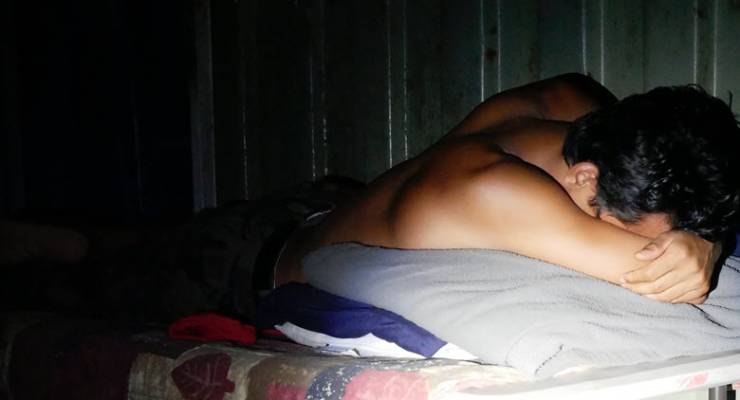
The mysterious departure of the Department of Home Affairs’ top doctor has sealed a rare opening used by external doctors and advocates to lobby for the interests of sick refugees and asylum seekers.
Dr John Brayley served as the inaugural surgeon general and chief medical officer of the Australian Border Force for two years before he quietly departed the dual role in September 2017. More than four months later, a spokesperson for the department confirmed that the process to fill the positions is ongoing.
That’s left a gap that doctors and refugee advocates say has caused a key line of communication to effectively die at a time of extreme concern about healthcare on Manus Island and Nauru. Recent cases included that of a young girl who attempted suicide on Nauru and was only transferred to Australia after an order from the Federal Court. The department has resisted evacuating patients to Australia, where lawyers can secure injunctions stopping their return to Nauru or Papua New Guinea.
A number of advocates told Crikey that bringing the cases of sick asylum seekers directly to Brayley had helped push the department to intervene or take action, and ensured that a small amount external accountability could be enforced.
“Trying to get patients off Nauru was like trying to get blood out of a stone,” according to Dr Nick Martin, who served as the Senior Medical Officer on Nauru for private contractor International Health and Medical Services.
Martin was placed on Nauru from November 2016 to August 2017. Since leaving the role, he has blasted the process used by Nauruan and Australian officials to determine when a refugee should be transferred for care outside of the small Pacific island.
Martin told Crikey that Brayley’s interventions had helped him get good outcomes in at least two stalled cases during his time on Nauru. One related to a months-old baby boy who was having serious breathing problems as the result of a windpipe constriction.
“Had [Brayley] not said anything, that child would still be there,” Martin said.
George Newhouse, the principal solicitor of the National Justice Project, has regularly sued the Australian government over its treatment of refugees. He has few kind words for those behind the country’s immigration detention network.
Yet when Brayley was still in his role, Newhouse spoke to him often. In an email, he called Brayley “a consummate professional”.
“It is hard to know what goes on behind the scenes at Border Force,” Newhouse wrote. “However my dealings with them indicate that their decisions and their decision making processes have deteriorated significantly since Dr Brayley has left.”
Some refugee advocates remain sceptical of the Surgeon General role and questioned its level of influence in the department. They pointed to the death of Hamed Shamshiripour as an example: this was a case repeatedly brought to Brayley’s attention that ultimately resulted in a death.
Martin has also previously told BuzzFeed that Brayley was frequently overruled by the department.
Yet those who lobbied Brayley directly tended to describe the advocacy route as fruitful.
In November 2017, the Australian Medical Association flagged concerns about Brayley’s resignation. “There was regular communication between my office and his office, he and I would talk from time to time,” AMA President Michael Gannon told ABC radio. “Since his resignation, we’ve lost a lot of those communication channels.”
Dr Paddy McLisky, who examines the cases of people held on Papua New Guinea and Nauru for the advocacy group Doctors For Refugees, used to speak with Brayley on a regular basis, providing updates about patients and ensuring the department was aware of those in need of urgent assistance.
Now, McLisky’s group deals with a generic department email address. They don’t know who operates it.
“There’s no medically trained person that we communicate with directly now,” according to Dr McLisky. “That’s the long and the short of it.”
In a senate estimates hearing in October last year, department head Michael Pezzullo rejected the idea that Brayley’s departure had been “abrupt” or a “surprise”, and praised the former bureaucrat. The department also has an internal health advisory panel.
In a politely worded email, Brayley declined to comment on the reasons for his resignation.
Those who once lobbied Brayley, and some who have known him for several years, told Crikey they can only guess why he resigned. As it turns out, however, they all have exactly the same guess.
“He’s a nice guy,” Dr Nick Martin said. “He was in an impossible position.”







Even Auschwitz had a hospital else we’d have never heard of Primo Levi.
I hope that Dutton and his masters will be condemned forever for this shameful situation. I’m sure that Australia will be.
And what else was expected of Reichsfuhrer Dutton? The only bright note is that Dr Brayley is still apparently contactable, and has not been disappeared.